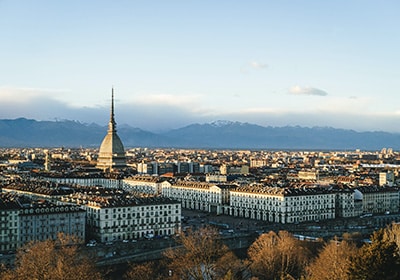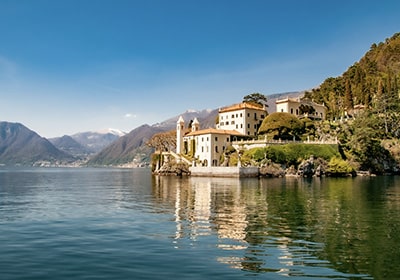An Italy residence permit (Permesso di Soggiorno) is an official authorization that allows non-EU nationals to live legally in Italy for stays longer than 90 days. It is required after entering the country with a long-stay entry visa and must be obtained within 8 days of arrival. The residence permit application must be submitted to the Italian authorities and is essential for living in Italy legally and accessing public services like healthcare, education, and employment.
Whether you’re relocating for work, study, investment, remote work, or family reasons, this guide explains everything about obtaining a residence permit in Italy. This what to expect:
- What is an Italian residence permit?
- Temporary vs Permanent residence Permits in Italy
- How to Get an Italy Residence Permit as an EU Citizen
- How to Apply for an Italian Residence Permit to Relocate and Work Remotely
- How to Get an Italian Residency by Investment Permit
- Italian Golden Visa Application Process
- How to Get an Italy Residence Permit for Work
- How to Obtain a Residence Permit for Pending Employment in Italy
- How to Get a Temporary Residence Permit as a Student in Italy
- How to Get Residency for Family Members in Italy
- How to Get Permanent Residency in Italy
- What is the difference between a residence permit and registering for civil residency in Italy?
- Path to Citizenship as a Resident in Italy
What is an Italian residence permit?
An Italian residence permit (permesso di soggiorno) is an official document that legally allows non-EU/EEA nationals to stay in Italy for more than 90 days. It is issued by the local police headquarters (Questura) after entering Italy with a valid visa.
It must match the purpose of your stay, such as work, study, family reunification, or elective residency. The residence permit needs to be applied for within eight days of arriving in Italy. Its validity depends on the visa type meaning it can range from a few months to a few years. The residence permit should be renewed before it expires to maintain legal residency in Italy.
Temporary vs Permanent residence Permits in Italy

A temporary residence permit is provided for specific reasons such as work, study, family reunification, medical treatment, or asylum and is valid for a limited period and, renewal is based on the original purpose.
In contrast, a permanent residence permit becomes available after five years of continuous legal stay and requires proof of income, accommodation, and basic knowledge of Italian. Permanent permits have more security and rights, almost similar to those of Italian citizens, including easier access to social services and the ability to live and work across the EU.
Here are some of the reasons non-EU citizens can apply for a temporary residence permit:
- Work: For employment under a contract with an Italian employer.
- Pending Employment: For individuals who might have lost the job and are still in between job searches in Italy.
- Study or Internship: For students enrolled in educational institutions or participating in internships.
- Family Reunification: To join family members legally residing in Italy.
- Medical Treatment: For individuals undergoing medical procedures in Italy.
- Elective Residency: For financially self-sufficient people who want to reside in Italy without working.
- Investment: For individuals investing a significant amount in Italy’s economy through a residency by investment program.
- Remote Work: Remote workers employed by companies outside Italy and have applied for a digital nomad visa.
- International Protection: Asylum seekers or individuals under humanitarian protection.
How to Get an Italy Residence Permit as an EU Citizen
EU citizens do not need a visa to enter Italy. You can freely enter and live in the country for up to 90 days without registering. However, for longer stays, EU citizens must register their residence in the municipality (comune) where they plan to live.
Within 90 days of arrival, applicants must go to the Anagrafe office of the Comune to declare your residence. This is a legal requirement and is necessary to obtain your Certificate of Residence (Certificato di Residenza).
You will need:
- A valid EU passport or national ID
- Proof of address (such as a rental contract or declaration from a host)
- Proof of sufficient income or employment in Italy (e.g., employment contract, self-employment registration, or pension documents)
- Health insurance coverage valid in Italy (if you’re not employed and not eligible for the public healthcare system)
- Completed registration form provided by the Comune
After verifying your documents, local Italian authorities may schedule a visit within 45 days to confirm that you actually live at the declared address. Once confirmed, you will receive your residence certificate, which serves as your proof of legal stay in Italy.
Once registered, you can register with the Italian National Health Service (Servizio Sanitario Nazionale, SSN) for access to public healthcare. Apply for a Codice Fiscale Italian tax identification number from the Agenzia delle Entrate, which is required for opening bank accounts, signing rental contracts, or even getting a phone plan.
How to Apply for an Italian Residence Permit to Relocate and Work Remotely

One of the best options for applying for an Italian residence permit as a remote worker is the Italy Digital Nomad Visa. It is designed for non-EU citizens who work remotely for companies or clients outside of Italy. This visa was created for highly skilled professionals who can work independently and have a steady income. Applicants are expected to show proof of remote employment, valid health insurance, and an annual income of at least €28,000. The residence permit is valid for one year, with the possibility of renewal.
Another option is the Italy Elective Residence Visa, which is ideal for people who want to live in Italy without working locally, such as retirees or remote workers with passive income. This visa requires applicants to prove that they have a steady income of at least €31,000 per year from pensions, rental properties, investments, or similar sources. Employment income is not accepted for this visa. The Elective Residence Visa is also valid for one year and can be renewed annually as long as the income requirement is met.
How to Get an Italian Residency by Investment Permit
Italy offers a residency by investment program through the Italy Investor Visa also known as the Italy Golden Visa. It is designed for non-EU nationals who want to live in Italy by making a qualifying investment.
The residence permit is initially valid for two years, renewable for three more years, and can lead to permanent residency after five years of continuous legal stay. Eligible applicants must be over 18, have no criminal record, and show proof of sufficient financial resources. The visa also allows you to include close family members such as a spouse, dependent children, and dependent parents.
Investment options include:
- €2 million in Italian government bonds.
- €500,000 in an Italian company (or €250,000 in an innovative startup).
- €1 million as a donation to support cultural or scientific initiatives.
Italian Golden Visa Application Process
- Gather Documents: Prepare your valid passport, proof of funds, investment commitment letter, background check, CV, and project/investment plan to be submitted through the Italian consulate.
- Apply for Nulla Osta: Submit your application with all documents through the Ministry of Economic Development’s online portal. Processing usually takes around 30 days.
- Receive Nulla Osta: If approved, you’ll get a certificate valid for six months.
- Apply for Visa: Use the Nulla Osta to apply for the Investor Visa at your nearest Agenzia delle Entrate.
- Travel to Italy: Enter Italy within the visa’s validity period.
- Apply for Residence Permit: Within eight working days of arrival, apply at the local Questura. Bring your passport, visa, and Nulla Osta.
- Make the Investment: Complete the required investment or donation within three months of entry.
- Maintain Investment: Keep the investment active during your stay.
- Renew Permit: After two years, you may renew your permit for an additional three years.
How to Get an Italy Residence Permit for Work
To get an Italy residence permit for work, you first need a job offer from an Italian employer and a work visa. The employer must apply for a work authorization called a Nulla Osta from the Italian immigration office, which can take around 30 to 60 days to process.
Once approved, you can apply for a work visa at the Italian consulate in your home country, which may take an additional 2 to 4 weeks. After arriving in Italy, you must apply for a residence permit (permesso di soggiorno) at the local police headquarters (Questura) within eight working days. The permit is valid for one to two years and can be renewed as long as your employment continues.
How to Obtain a Residence Permit for Pending Employment in Italy
A residence permit for pending employment in Italy (permesso di soggiorno per attesa occupazione), can be obtained when you have previously held a valid work permit in Italy that has expired or been terminated.
This permit allows applicants to legally stay in Italy while searching for a new job. You must apply at the local Questura within 60 days of your previous permit expiring, providing documents such as proof of previous employment, sufficient financial means, health insurance, and accommodation. The permit is valid for up to 12 months and can be converted into a work permit once new employment is secured.
How to Get a Temporary Residence Permit as a Student in Italy
To get a temporary residence permit as a student in Italy, you must first obtain a student visa from the Italian consulate in your home country. Non-EU citizens must first apply to an Italian university through the Universitaly portal or directly with the institution, usually between March and July. After receiving an admission letter, they can apply for a student visa. Applicants must submit a valid passport, visa, enrolment letter from an Italian educational institution, proof of accommodation, health insurance, and financial means. The permit is valid for one year and can be renewed annually for the students’ studies. Processing may take a few weeks to a few months.
How to Get Residency for Family Members in Italy

Italy allows family members of those who already have legal residency or citizenship to apply for residency through family reunification. Family members who can apply for residency in Italy include:
- Spouses (husband or wife)
- Minor children (under 18 years old)
- Adult children who depend financially on the resident family member
- Parents or grandparents, if they are dependent on the resident
- Sometimes other close relatives, if they live together and are dependent.
To get a residence permit as a family member, a few conditions must be met, such as providing proof of your family relationship, such as marriage or birth certificates. Family members in Italy must also have suitable housing and enough income to support the family without relying on social assistance.
How to Get Permanent Residency in Italy
Non-EU citizens can get permanent residency if they have legally lived in Italy for at least five continuous years with a valid residence permit. You must show stable income, proof of accommodation, no criminal record, and pass an Italian language test at the A2 level.
Once eligible, applicants can apply for the EU long-term residence permit at the local Questura. This permit offers more stability and allows you to live and work in other EU countries under certain conditions.
What is the difference between a residence permit and registering for civil residency in Italy?
As mentioned, a residence permit is required for non-EU citizens staying in Italy for more than 90 days. It is issued by the immigration police (Questura) and grants the legal right to stay in Italy for a specific reason. A civil residency (Residenza Anagrafica) is the act of officially registering your address with the local municipality (Comune). It is required for both EU and non-EU citizens planning to live in Italy for the long term. Civil residency gives access to healthcare, tax registration, and social benefits.
Path to Citizenship as a Resident in Italy
You can become an Italian citizen and gain an Italian passport through long-term residence. Non-EU citizens must first obtain a long-stay visa and a residence permit. After five years of continuous legal stay, you can apply for permanent residency, and after ten years, for citizenship by naturalization.
This path is possible through various residency visas, such as the Italian Golden Visa, the Elective Residency Visa, and the Digital Nomad Visa, as long as you maintain legal stay. You must live in Italy at least 183 days per year, register locally, show income stability, have no serious criminal record, and pass a B1 Italian language test.
|
Visa Type
|
Path to Permanent Residency
|
Path to Citizenship
|
Minimum Stay Requirement
|
|
Italy Golden Visa
|
Eligible for permanent residency after 5 years of continuous legal stay, maintaining the investment.
|
Eligible to apply for citizenship after 10 years of legal residency.
|
183 days/year
|
|
Elective Residency Visa
|
Leads to permanent residency after 5 years of uninterrupted stay, with proof of sufficient income and accommodation.
|
Citizenship possible after 10 years of legal residence but must not engage in work.
|
183 days/year
|
|
Digital Nomad Visa (2024)
|
Allows legal stay and renewable permits; permanent residency after 5 years if income and tax residency are maintained.
|
Citizenship application possible after 10 years of residence.
|
183 days/year
|
|
Work Visa
|
Eligible for permanent residency after 5 years of continuous legal employment.
|
Citizenship application after 10 years.
|
183 days/year
|
|
Study Visa → Work Permit
|
Must convert to work permit to start the residency timeline. Permanent residency after 5 years of work.
|
Citizenship after 10 years from the work permit start.
|
183 days/year
|
How Can Global Citizen Solutions Help You?
Global Citizen Solutions is a boutique migration consultancy firm with years of experience delivering bespoke residence and citizenship by investment solutions for international families. With offices worldwide and an experienced, hands-on team, we have helped hundreds of clients worldwide acquire citizenship, residence visas, or homes while diversifying their portfolios with robust investments.
We guide you from start to finish, taking you beyond your citizenship or residency by investment application.



